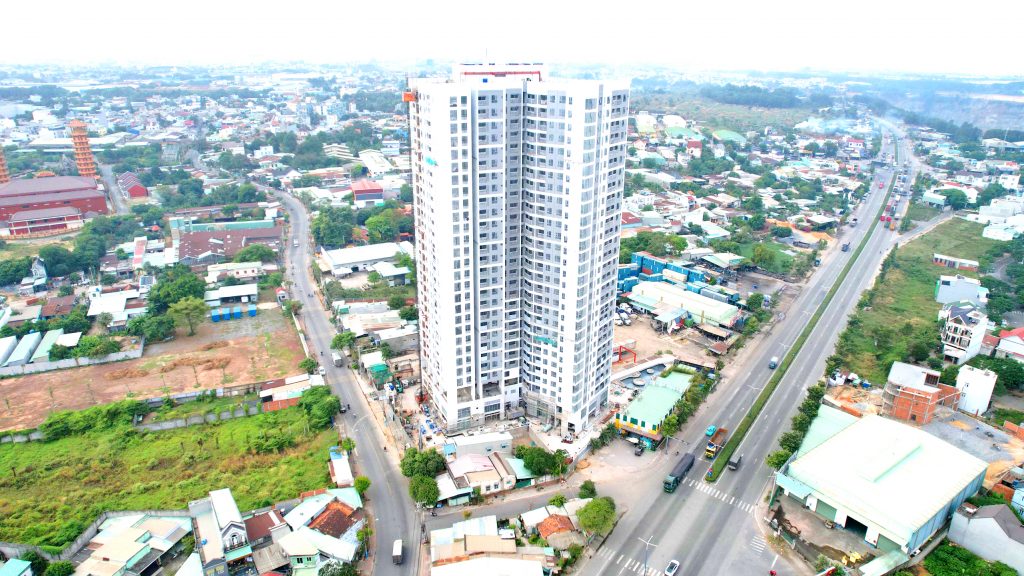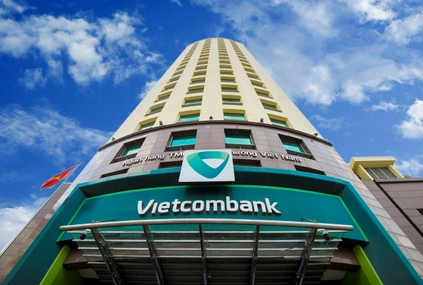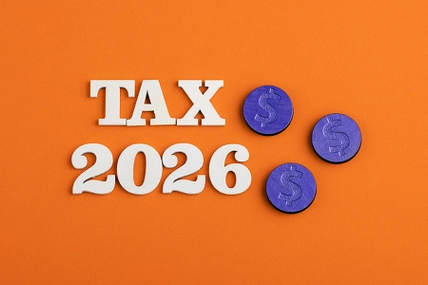Decree 115/2024/ND-CP on investor selection bidding has brought important changes in the process and procedures for bidding on land-use projects. This article provides a detailed guide on the new regulations and implementation process.
- 1. Overview of Decree 115/2024
- Key New Features
- Simplification of procedures and decentralization of authority:
- Ensuring competition and transparency:
- Transitional provisions:
- 2. Investor Selection Forms
- 2.1. Open Bidding (Clause 1, Article 34 of the Law on Bidding, Article 9 of Decree 115/2024)
- 1. Applicable to most projects:
- 2. Ensuring competition and fairness:
- 3. Public and transparent process:
- 2.2. Limited Bidding (Clause 2, Article 34 of the Law on Bidding, Article 9 of Decree 115/2024)
- 1. Applicable to special projects:
- 2. Special capacity requirements:
- 3. Limited number of qualified investors:
- 2.3. Special Cases (Clause 3, Article 34 of the Amended Law on Bidding)
- 3. Bidding Process and Procedures (Article 46 of the Law on Bidding)
- 3.1. For projects applying the one-stage one-envelope and two-envelope methods (Chapter II of Decree 115/2024)
- 3.2. For projects applying the open bidding form using the two-stage one-envelope method (Chapter III of Decree 115/2024)
- 3.3. For projects requiring the determination of the number of interested investors (Chapter IV of Decree 115/2024)
- 4. Investor Evaluation Criteria
- 4.1 Capacity, experience (Article 46 of Decree 115/2024)
- 1. Financial capacity and capital arrangement requirements:
- 2. Experience in implementing similar projects:
- 4.2 Investor's business investment plan (Article 47 of Decree 115/2024)
- 1. Technical evaluation standards:
- 2. Social evaluation standards:
- 3. Environmental evaluation standards:
- 4.3 Land use efficiency (Article 48 of Decree 115/2024)
- 1. Standards for evaluating land use efficiency:
- 2. The investor proposes the state budget contribution rate:
- 3. Minimum state budget contribution rate:
- 4. Reference land area:
- 5. Determining a land area similar in location:
- 4.4 Investment effectiveness in developing industries, fields, and localities (Article 49 of Decree 115/2024)
- 1. Standards for evaluating the effectiveness of investment in industry, field, and locality development:
- 2. Energy projects:
- 3. Aviation service projects:
- 4. Apartment building renovation and reconstruction projects:
- 5. Independence from budget obligations:
- 5. Implementation and Supervision
- 1. Inspection (Article 60 of Decree 115/2024)
- 2. Supervision (Article 61 of Decree 115/2024):
- 6. Common Issues and Solutions
- 1. Issues in preparing bid documents
- 2. Difficulties in evaluating bid documents
- Conclusion
- Frequently Asked Questions (FAQ)
- 1. When does Decree 115/2024 take effect?
- 2. Who is required to apply this Decree? (Article 2 of Decree 115/2024)
- 3. How long does the bidding process last? (Article 49 of the Law on Bidding)
1. Overview of Decree 115/2024
Decree No. 115/2024/ND-CP, issued on September 16, 2024, provides detailed regulations and guidelines for implementing the Law on Bidding regarding the selection of investors for investment projects involving land use. This Decree aims to ensure transparency, competition, and efficiency in the process of selecting investors for land-use projects.
Key New Features
Simplification of procedures and decentralization of authority:
The Decree simplifies the procedures for selecting investors and decentralizes authority to localities. For projects under the jurisdiction of the Prime Minister, provincial People's Committees do not need to consult the Ministry of Planning and Investment when conducting investor approval procedures.
Ensuring competition and transparency:
The Decree clearly stipulates public and transparent bidding, even when only one investor registers for the project, to prevent "underground" agreements or "arrangements" between investors.
Transitional provisions:
The Decree includes transitional regulations for projects already approved or in the process of selecting investors before the Decree takes effect, ensuring continuity and consistency in the application of the law.
2. Investor Selection Forms
The Decree outlines the main forms of investor selection as follows:
2.1. Open Bidding (Clause 1, Article 34 of the Law on Bidding, Article 9 of Decree 115/2024)
1. Applicable to most projects:
Open bidding allows an unlimited number of investors to participate, providing opportunities for all investors with sufficient capacity and experience to join. This enables government agencies to select the best investor for the project.
2. Ensuring competition and fairness:
Expanding the participation to more investors creates a healthy competitive environment, helping to optimize economic benefits for the state and society. Each investor will propose the best plans and conditions to be selected, thereby improving the quality and efficiency of the project.
3. Public and transparent process:

2.2. Limited Bidding (Clause 2, Article 34 of the Law on Bidding, Article 9 of Decree 115/2024)
1. Applicable to special projects:
When a project has special characteristics or requires complex technical or technological conditions, open bidding may not be effective. In this case, limited bidding focuses on investors with the capability to meet the project requirements.
2. Special capacity requirements:
Some projects require investors with specific experience, technology, or expertise that not all investors possess. Limited bidding allows for the selection of investors who meet these special requirements, ensuring the quality and progress of the project.
3. Limited number of qualified investors:
In some cases, the number of investors with the required capacity and experience for the project is limited. Limited bidding ensures that only investors truly capable of meeting the requirements are invited to participate, avoiding situations where open bidding invites too few qualified investors.
2.3. Special Cases (Clause 3, Article 34 of the Amended Law on Bidding)
Law No. 57/2024/QH15, passed by the National Assembly on November 29, 2024, and effective from January 15, 2025, amends and supplements several important laws, including the Law on Bidding. It stipulates special cases in investor selection:
1. Investor selection in special cases applies to business investment projects with specific requirements or conditions.
2. Special requirements may involve investment procedures, land allocation procedures, land lease, sea area allocation, including the procedures, methods, criteria for selecting investors, and the contents of the investment project contract.
3. Applies to requirements ensuring national defense, security, foreign affairs, territorial boundaries, national interests, and fulfilling national political missions.
4. Investor selection methods under the Law on Bidding cannot be applied in these cases.
3. Bidding Process and Procedures (Article 46 of the Law on Bidding)
3.1. For projects applying the one-stage one-envelope and two-envelope methods (Chapter II of Decree 115/2024)
1. Announcing the investment business project;
2. Preparing for investor selection bidding, including drafting, appraising, and approving the bidding documents;
3. Organizing the investor selection bidding, including: inviting bids; issuing, amending, cand larifying the bidding documents; preparing, submitting, receiving, managing, amending, withdrawing, or replacing bid documents;
4. Evaluating the bid documents, including bid opening; checking and evaluating the validity of the bid documents; detailed evaluation of the bid documents;
For projects applying the one-stage one-envelope method:
For projects applying the one-stage two-envelope method:
5. Submitting, appraising, approving, and publicly announcing the investor selection results; explaining the reasons for not selecting an investor upon request (if any);
6. Negotiating, finalizing, and signing the contract.

3.2. For projects applying the open bidding form using the two-stage one-envelope method (Chapter III of Decree 115/2024)
1. Preparing the first stage of bidding
2. Organizing the first stage of bidding
3. Preparing and organizing the second stage of bidding
4. Evaluating the second-stage bid documents
5. Submitting, appraising, approving, and publicly announcing the investor selection results; negotiating, finalizing, and signing the contract, publicly disclosing project contract information
3.3. For projects requiring the determination of the number of interested investors (Chapter IV of Decree 115/2024)
1. Applying the invitation to express interest procedure
2. Preparing the invitation to express interest
3. Drafting, and approving the invitation to express interest documents
4. Announcing the invitation to express interest, issuing, amending, and clarifying the invitation to express interest documents; extending the submission deadline for registration documents
5. Preparing, submitting, receiving, amending, withdrawing, or clarifying the project registration documents
6. Opening and evaluating the project registration documents for land-use investment projects
7. Submitting, approving, and publicly announcing the results of the invitation to express interest
8. Investor Selection Bidding Procedures
4. Investor Evaluation Criteria
The main evaluation criteria include:
4.1 Capacity, experience (Article 46 of Decree 115/2024)
1. Financial capacity and capital arrangement requirements:
- The required equity capital is determined by the total investment capital of the project.
- Minimum equity requirements for real estate projects and some special projects.
- In the case of joint ventures: The total equity of the joint venture equals the combined equity of the members; the lead investor must have at least 30% of the equity, with other members having at least 15%.
- Capital mobilization capacity requirements.
- Financial indicators (if applicable).
2. Experience in implementing similar projects:
- Experience in investing and constructing similar works.
- Experience in operating and managing similar projects (for projects requiring operations).
- Experience of key personnel and specialized equipment (if legally required).
- History of disputes or lawsuits related to implemented projects.
- History of cessation or termination of investment activities in the locality (if any).
4.2 Investor's business investment plan (Article 47 of Decree 115/2024)
1. Technical evaluation standards:
Evaluating based on the alignment of the investment plan with urban planning, the ability to apply technology, the operational organization, and specific requirements for types of projects such as urban areas, apartment buildings, waste treatment facilities, racecourses, water supply works, etc.
2. Social evaluation standards:
Evaluating based on compensation, resettlement support plans, and contributions to social welfare, especially for socialized projects such as healthcare, education, market construction, and apartment building renovation.
3. Environmental evaluation standards:

4.3 Land use efficiency (Article 48 of Decree 115/2024)
1. Standards for evaluating land use efficiency:
Applied to projects under the Decree and defined in the bidding documents based on the minimum rate for state budget contribution.
2. The investor proposes the state budget contribution rate:
Based on the minimum rate (m), the proposed rate (M) must be greater than or equal to m.
3. Minimum state budget contribution rate:
Calculated by the average increase in land auction prices, determined by the difference between the auction price and the starting price.
4. Reference land area:

5. Determining a land area similar in location:
Includes land areas within the same district administrative unit or adjacent to other districts.
4.4 Investment effectiveness in developing industries, fields, and localities (Article 49 of Decree 115/2024)
1. Standards for evaluating the effectiveness of investment in industry, field, and locality development:
These include criteria such as the minimum state budget contribution, revenue contribution ratio, maximum price as regulated by law, public works, social assistance, environmental pollution levels, and land area usage.
2. Energy projects:
The evaluation standard for investment effectiveness is the electricity price ceiling within the price frame issued by the Ministry of Industry and Trade and the agreed price with the electricity buyer.
3. Aviation service projects:
In the first 5 years, the investor proposes the state budget contribution rate; from the 6th year onward, the minimum state budget contribution rate is determined based on the airport service concession price framework.
4. Apartment building renovation and reconstruction projects:
The evaluation standard is the maximum time to hand over housing for resettlement.
5. Independence from budget obligations:
The values and rates of state budget contributions are not related to other financial obligations of the investor.
5. Implementation and Supervision
The implementation and supervision of the investor selection bidding process are carried out through the following steps:
1. Inspection (Article 60 of Decree 115/2024)
- Issuance of guidance documents, project announcement, preparation and approval of documents, evaluation, and appraisal of bidding results.
- The content of the signed contract and compliance with legal grounds in contract execution.
2. Supervision (Article 61 of Decree 115/2024):
Investor selection activities are supervised in conjunction with investment project supervision or overall investment supervision by the competent state authorities.
Publicizing project information, preparing, and approving bidding documents, and evaluating bid documents.
Appraising investor selection results, negotiating and signing contracts.
After the contract ends, the competent authority supervises the investor's commitment throughout the project implementation process.
6. Common Issues and Solutions
1. Issues in preparing bid documents
Consult experts to ensure the documents and information in the bid are accurate and complete.
Thoroughly study the guidance from the competent authority regarding the process, evaluation criteria, and requirements of the bidding documents.
- Prepare complete documents as required by the bidding documents, avoiding omissions or incomplete information.
2. Difficulties in evaluating bid documents
Apply clear, detailed, and understandable evaluation criteria to ensure fair and accurate evaluation of bid documents.
Establish a team of qualified experts with sufficient experience and expertise to handle the bid documents.
Ensure objectivity in the evaluation process, avoiding undue interference or influence from external factors.

Conclusion
Decree 115/2024 has established a comprehensive legal framework for the investor selection bidding process. Adhering to the regulations and procedures will help ensure the efficiency and transparency of investor selection.
For detailed advice on the investor selection bidding process, please contact our legal experts via email: [email protected] or hotline: 0937215585
Frequently Asked Questions (FAQ)
1. When does Decree 115/2024 take effect?
The decree takes effect from the date of issuance, September 16, 2024, and applies to new bidding projects.
2. Who is required to apply this Decree? (Article 2 of Decree 115/2024)
Organisations and individuals involved in or related to the process of selecting investors for land-use investment projects as specified in Article 4 of Decree 115/2024.
Organisations and individuals engaged in bidding activities not falling within the specified cases can apply the Law on Bidding according to Clause 4, Article 2 of the Law on Bidding.
3. How long does the bidding process last? (Article 49 of the Law on Bidding)
The specific duration depends on the scale and nature of each project.
For domestic bidding: At least 45 days from the first issuance of the bidding documents until the bid closing time.
For international bidding: At least 60 days from the first issuance of the bidding documents until the bid closing time.











